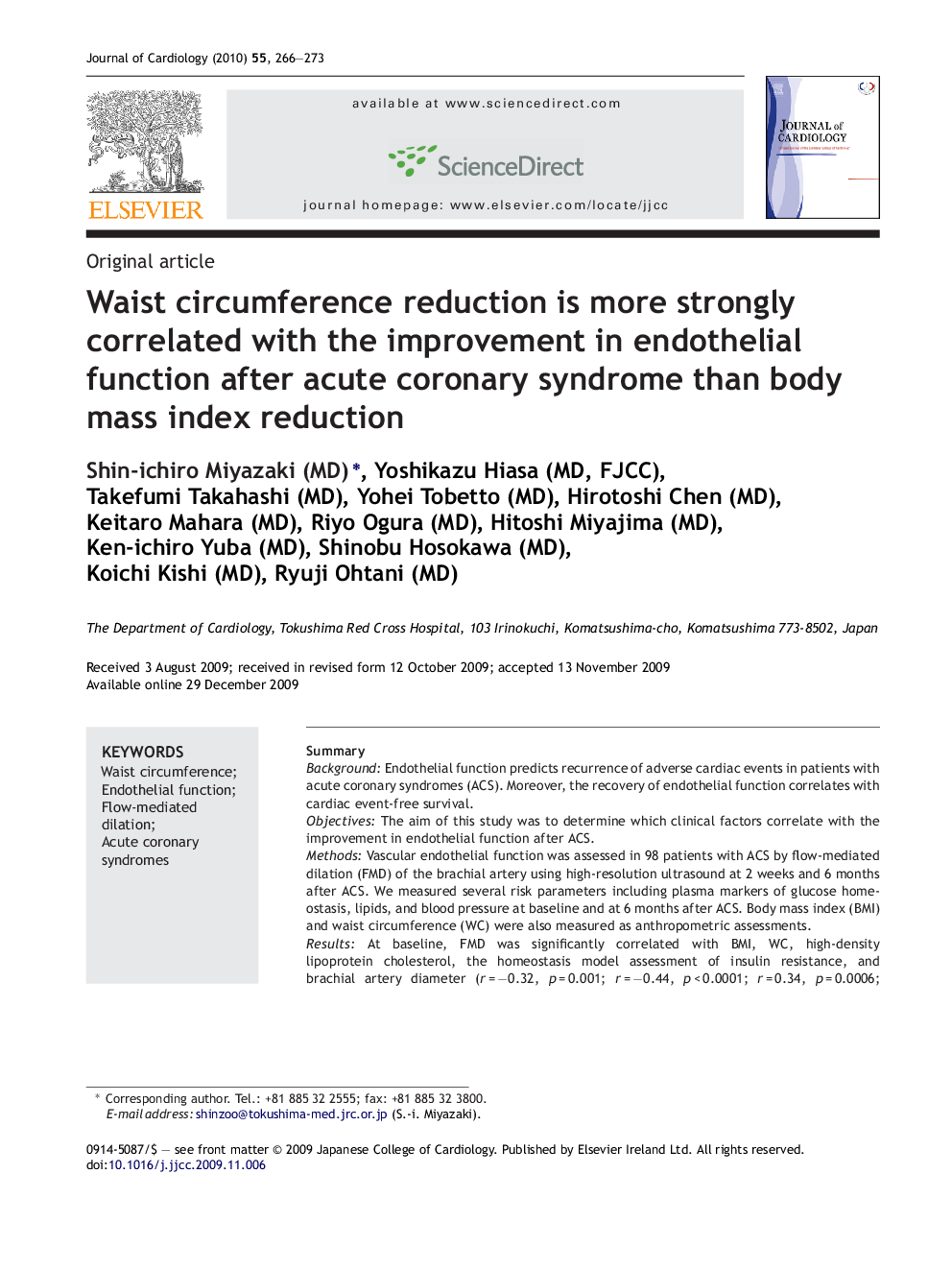| Article ID | Journal | Published Year | Pages | File Type |
|---|---|---|---|---|
| 2963670 | Journal of Cardiology | 2010 | 8 Pages |
SummaryBackgroundEndothelial function predicts recurrence of adverse cardiac events in patients with acute coronary syndromes (ACS). Moreover, the recovery of endothelial function correlates with cardiac event-free survival.ObjectivesThe aim of this study was to determine which clinical factors correlate with the improvement in endothelial function after ACS.MethodsVascular endothelial function was assessed in 98 patients with ACS by flow-mediated dilation (FMD) of the brachial artery using high-resolution ultrasound at 2 weeks and 6 months after ACS. We measured several risk parameters including plasma markers of glucose homeostasis, lipids, and blood pressure at baseline and at 6 months after ACS. Body mass index (BMI) and waist circumference (WC) were also measured as anthropometric assessments.ResultsAt baseline, FMD was significantly correlated with BMI, WC, high-density lipoprotein cholesterol, the homeostasis model assessment of insulin resistance, and brachial artery diameter (r = −0.32, p = 0.001; r = −0.44, p < 0.0001; r = 0.34, p = 0.0006; r = −0.21, p = 0.04; r = −0.47, p < 0.0001, respectively). In a stepwise multivariate regression analysis at baseline, larger WC and brachial artery diameter were independently correlated with lower brachial artery FMD (R2 = 0.319, p < 0.0001). At 6 months, the change in FMD was significantly correlated with the change in WC and BMI (r = −0.59, p < 0.0001; r = −0.33, p = 0.001, respectively). In a stepwise multivariate regression analysis, WC reduction was independently correlated with improved FMD (R2 = 0.349, p < 0.0001).ConclusionsWC reduction is more strongly correlated with the improvement of endothelial function after ACS than BMI reduction.
